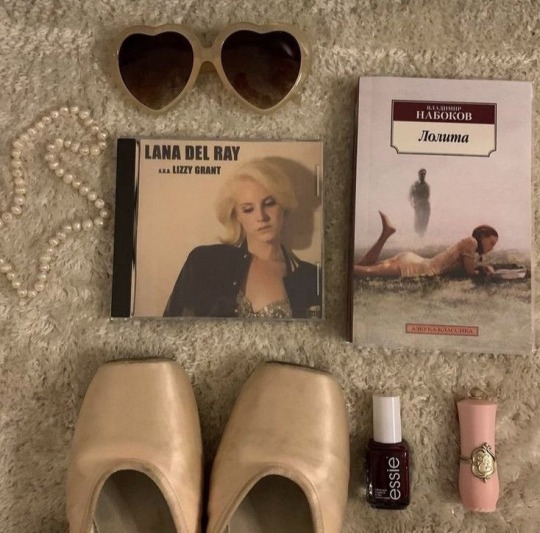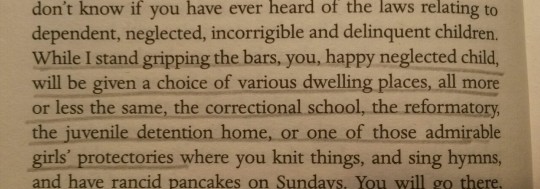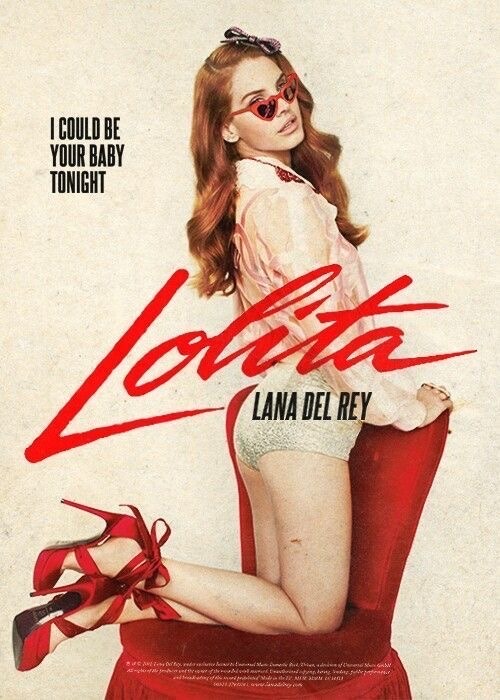She was Lo, plain Lo, in the morning, standing four feet ten in one sock. She was Lola in slacks. She was Dolly at school. She was Dolores on the dotted line. But in my arms she was always Lolita.
Don't wanna be here? Send us removal request.
Text
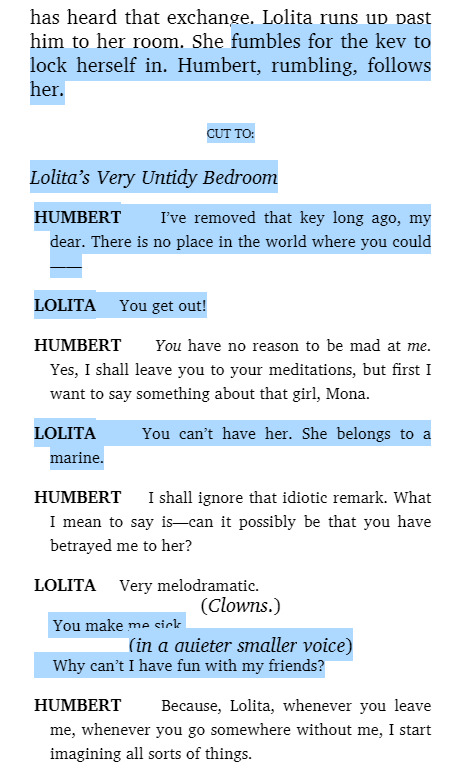
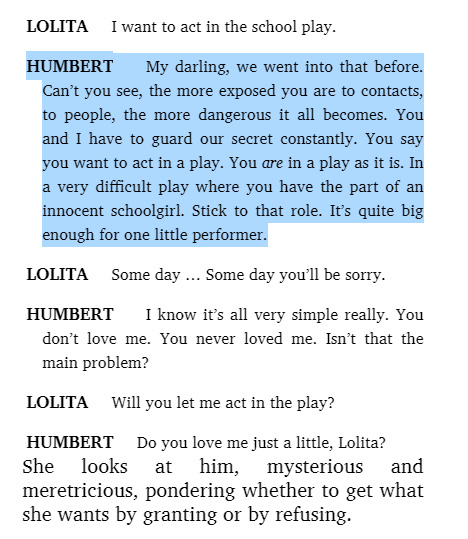
it's mindblowing how we're even still argueing whether the book is a love story when given the opportunity to showcase the story again in plainer language this is what nabokov turned out. there is no place in the world where you could hide.
197 notes
·
View notes
Text
some interesting associations in the fact that dolores was named juanita dark in drafts of lolita for a long time and in speak, memory nabokov spells joan of arc as joaneta darc
73 notes
·
View notes
Text
“Lolita isn’t a perverse young girl. She’s a poor child who has been debauched and whose senses never stir under the caresses of the foul Humbert Humbert, whom she asks once, “how long did [he] think we were going to live in stuffy cabins, doing filthy things together…?” But to reply to your question: no, its success doesn’t annoy me, I am not like Conan Doyle, who out of snobbery or simple stupidity preferred to be known as the author of The Great Boer War, which he thought superior to his Sherlock Holmes.
It is equally interesting to dwell, as journalists say, on the problem of the inept degradation that the character of the nymphet Lolita, whom I invented in 1955, has undergone in the mind of the broad public. Not only has the perversity of this poor child been grotesquely exaggerated, but her physical appearance, her age, everything has been transformed by the illustrations in foreign publications. Girls of eighteen or more, sidewalk kittens, cheap models, or simple long-legged criminals, are baptized “nymphets” or “Lolitas” in news stories in magazines in Italy, France, Germany, etc.; and the covers of translations, Turkish or Arab, reach the height of ineptitude when they feature a young woman with opulent contours and a blond mane imagined by boobies who have never read my book.
In reality Lolita is a little girl of twelve, whereas Humbert Humbert is a mature man, and it’s the abyss between his age and that of the little girl that produces the vacuum, the vertigo, the seduction of mortal danger. Secondly, it’s the imagination of the sad satyr that makes a magic creature of this little American schoolgirl, as banal and normal in her way as the poet manqué Humbert is in his. Outside the maniacal gaze of Humbert there is no nymphet. Lolita the nymphet exists only through the obsession that destroys Humbert. Here’s an essential aspect of a unique book that has been betrayed by a factitious popularity.”
- Vladimir Nabokov in an Interview with Bernard Pivot for Apostrophes (1975)
306 notes
·
View notes
Photo

333 notes
·
View notes
Text
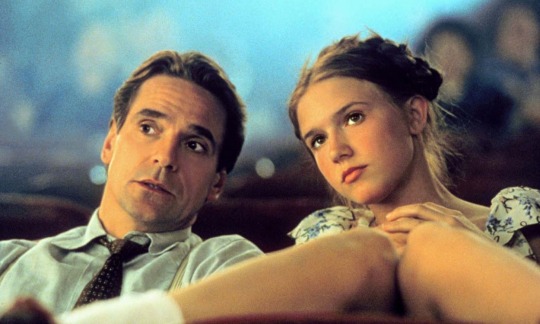
This scene was never in the final movie, but I found it in the shooting script. Here is some of it below.
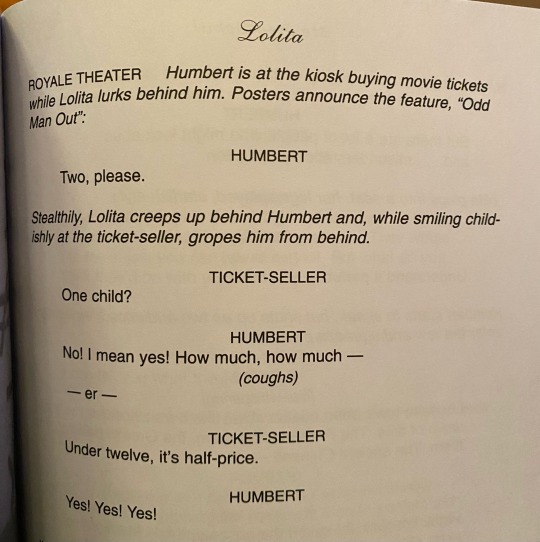



915 notes
·
View notes
Text
“She said I had attempted to violate her several times when I was her mother’s roomer. She said she was sure I had murdered her mother. She said she would sleep with the very first fellow who asked her and I could do nothing about it.”
—
Lolita, Vladimir Nabokov
This is the culmination of Humbert’s abuse of Dolores. This is how it begins to end. This is how she feels. She doesn’t love him or want him. He isn’t kind to her. He doesn’t earn her, as if he ever could. He rapes her. Kidnaps her. She refutes and denies him his fantasy of her every chance she gets. Dolores hates his image of ‘Lolita’ so much that she’d rather sleep with any other man she can find, just to distance herself from Humbert.
She’s not into it. She doesn’t deserve it. She doesn’t need an older lover (because, HELLO, her experience with Quilty isn’t any better). She’s not a nymphet because there are no such things as nymphets. It’s a made-up word used by a fictional rapist to justify his abuse of young girls.
Dolores just wants to be free. She just wants to grow up and make her own choices. She wants autonomy. And every person reading this book and romanticizing her experience is denying her later growth and escape. Dolores grows up and becomes Dolly Schiller.
Dolores runs away from BOTH of her abusers. She marries a man roughly her own age BECAUSE THEY LOVE EACH OTHER and they have a life and a house and a baby. She is NOT defined by her abuse unless we ignore the larger narrative in favor of Humbert’s fantasy.
THAT’S the end of the story. Not Humbert’s self-pitying dialogue, not even Quilty’s murder. The end of the story is when Dolores is free.
615 notes
·
View notes
Text

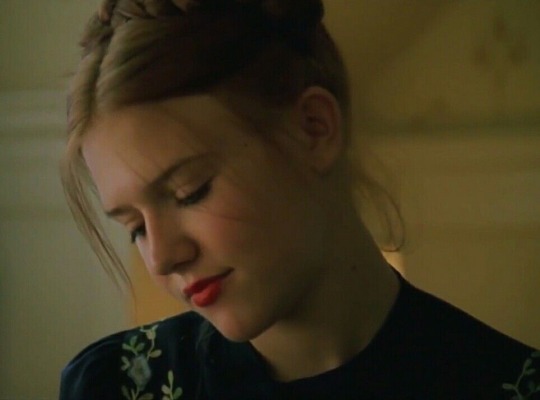
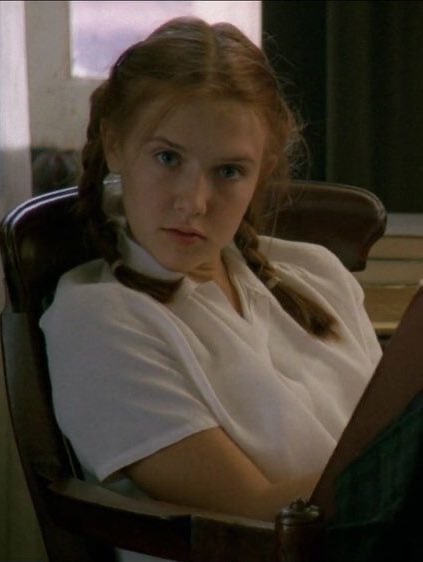


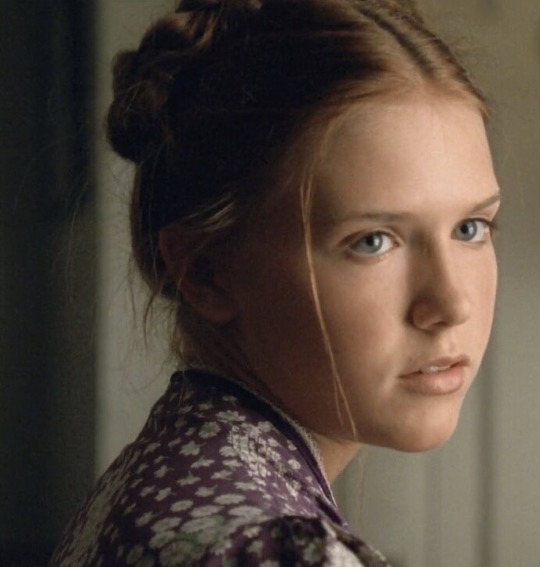



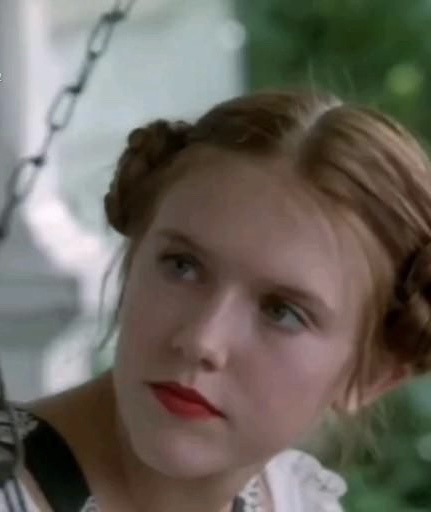
What is your favourite hairstyle for Lo?
2K notes
·
View notes
